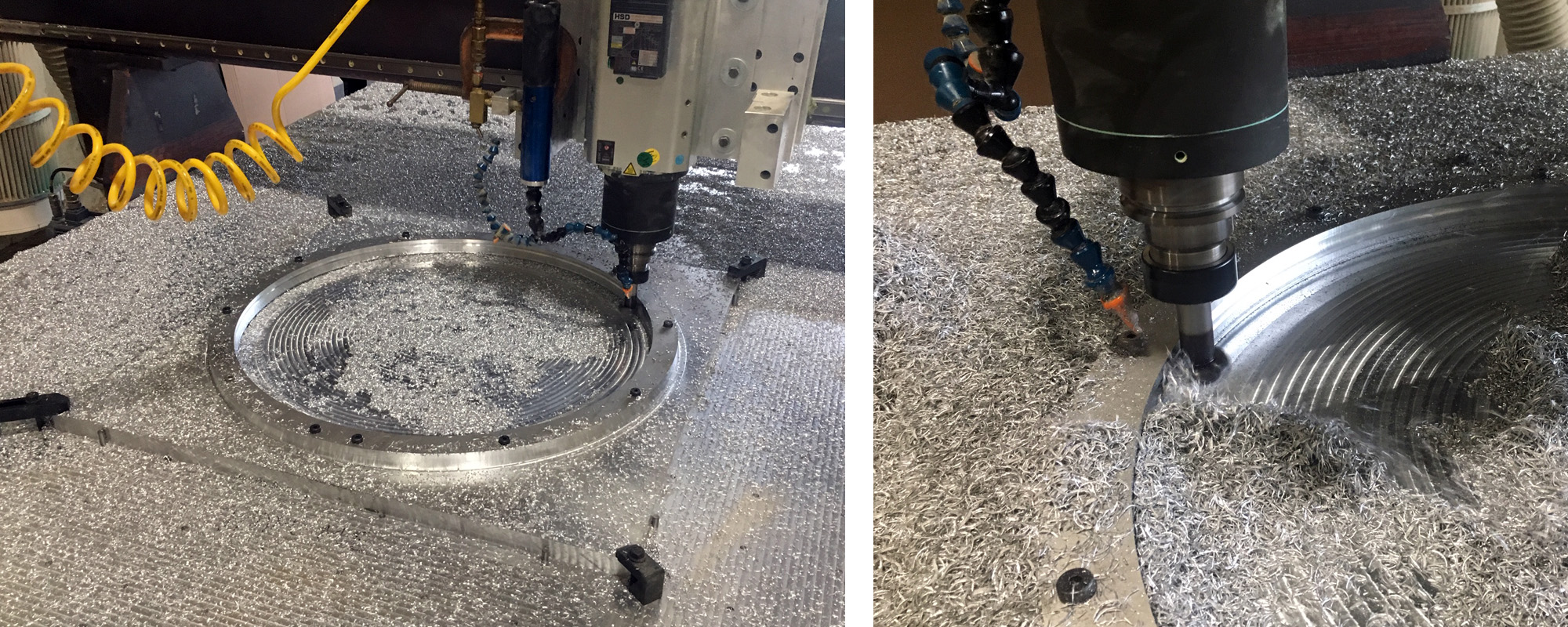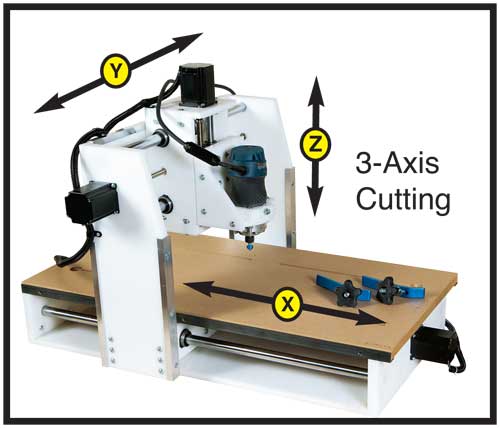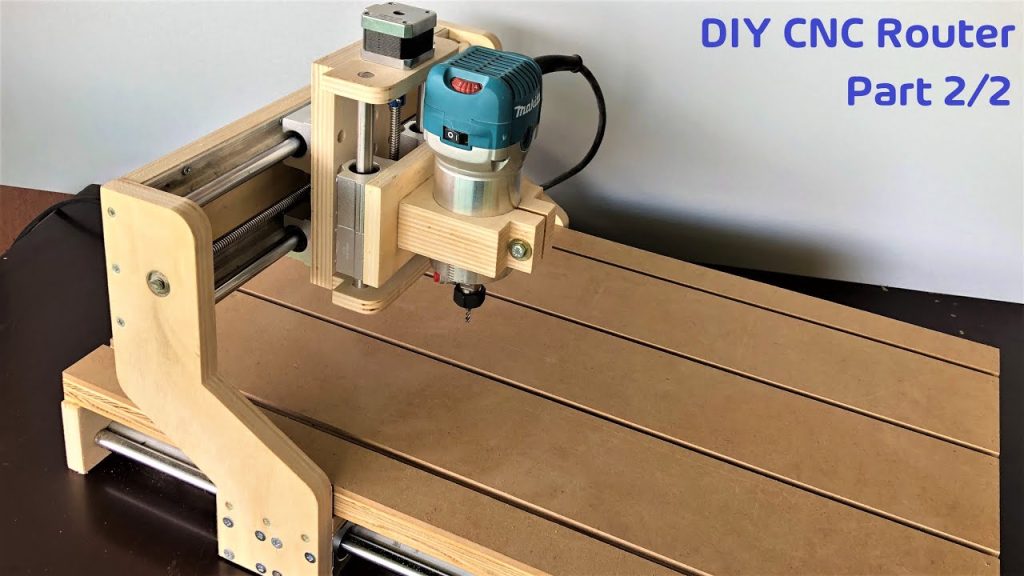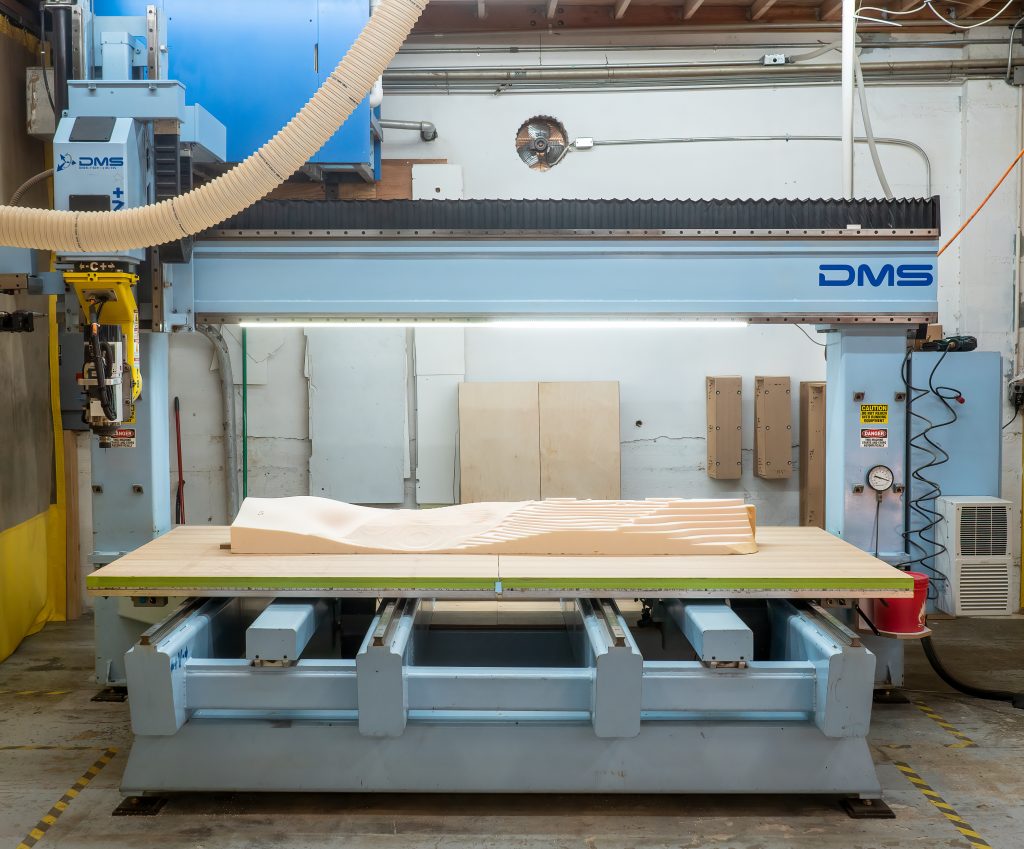Table of Contents
Aluminum cylinder heads are widely used in modern engines due to their lightweight and excellent heat dissipation properties. But the question arises, are these heads cast or machined using a CNC router? Let’s dive into the details and find out.
In the past, aluminum cylinder heads were typically cast using a sand or die casting process. However, with the advancement of technology, CNC routers have become a popular option for manufacturing cylinder heads. But which method provides better quality and performance? Is one method superior to the other? Join us as we explore the world of aluminum cylinder head manufacturing.
Aluminum heads can be both cast or CNC machined, depending on the manufacturer and the specific application. Cast heads are typically less expensive and are suitable for most street applications. CNC machined heads, on the other hand, are more expensive and offer better performance and precision for racing or high-performance applications.
Aluminum Heads: Cast or CNC Router?
Aluminum cylinder heads are one of the most critical components of a high-performance engine. They play a crucial role in the engine’s performance, efficiency, and durability. But when it comes to manufacturing aluminum heads, there are two primary methods: casting and CNC machining. Both methods have their benefits and drawbacks, and it’s essential to understand the differences between them.
Cast Aluminum Cylinder Heads
Cast aluminum heads are manufactured by pouring molten aluminum into a mold. The molten aluminum solidifies and takes the shape of the mold. The result is a cylinder head with a uniform shape and thickness. Cast aluminum heads are commonly used in production engines because they are cost-effective and easy to produce in large quantities.
However, cast aluminum heads have limitations when it comes to precision and performance. The casting process can result in inconsistent material density, which affects the head’s strength and durability. Additionally, the cast heads have thicker walls, which limits airflow and reduces performance.
Benefits of Cast Aluminum Cylinder Heads:
– Cost-effective
– Easy to produce in large quantities
– Suitable for production engines
Drawbacks of Cast Aluminum Cylinder Heads:
– Inconsistent material density
– Limited precision
– Thicker walls limit airflow and reduce performance
CNC Machined Aluminum Cylinder Heads
CNC machining is a precision manufacturing process that involves cutting and shaping aluminum with computer-controlled machines. In the case of aluminum heads, a block of aluminum is placed in a CNC machine, which cuts and shapes it into the desired shape and size.
CNC machining allows for precise control over the head’s shape and thickness, resulting in a more uniform and stronger head. Additionally, CNC machined heads have thinner walls, which improves airflow and performance. However, CNC machining is a more expensive process than casting, and it’s not suitable for mass production.
Benefits of CNC Machined Aluminum Cylinder Heads:
– Precise control over the head’s shape and thickness
– Uniform and stronger head
– Thinner walls improve airflow and performance
Drawbacks of CNC Machined Aluminum Cylinder Heads:
– More expensive than casting
– Not suitable for mass production
Cast vs. CNC Machined Aluminum Cylinder Heads: Which is Better?
The choice between cast and CNC machined aluminum heads ultimately depends on your engine’s requirements and budget. If you’re building a production engine on a budget, cast aluminum heads are a cost-effective option. However, if you’re building a high-performance engine and want maximum precision and performance, CNC machined heads are the way to go.
Here’s a quick comparison between cast and CNC machined aluminum heads:
| Criteria | Cast Aluminum Heads | CNC Machined Aluminum Heads |
|---|---|---|
| Cost | Low | High |
| Precision | Low | High |
| Strength | Low to Medium | High |
| Wall Thickness | Thick | Thin |
| Airflow/Performance | Low to Medium | High |
Conclusion
In summary, aluminum cylinder heads can be manufactured using casting or CNC machining methods. Cast heads are cost-effective and suitable for production engines, but they have limitations when it comes to precision and performance. CNC machined heads are more expensive but offer precise control over the head’s shape and thickness, resulting in a stronger and more efficient head. Ultimately, the choice between cast and CNC machined aluminum heads depends on your engine’s requirements and budget.
Frequently Asked Questions
Are Aluminum Heads Cast or CNC Router?
Aluminum heads can be both cast and CNC router. Cast aluminum heads are made by pouring molten aluminum into a mold and then allowing it to cool and harden into the desired shape. This process is less expensive and faster than CNC routing, but it can result in less precision and consistency. CNC router aluminum heads, on the other hand, are made by using a computer-controlled machine to cut and shape a block of aluminum into the desired shape. This process is more precise and consistent but is also more time-consuming and expensive.
The choice between cast and CNC router aluminum heads depends on the manufacturer’s production needs, budget, and desired level of precision. Some manufacturers may use a combination of both methods to achieve the desired results. Ultimately, the quality and performance of the aluminum heads depend on the materials used, the manufacturing process, and the quality control measures in place.
What are the advantages of using CNC router aluminum heads?
CNC router aluminum heads offer several advantages over cast aluminum heads. First and foremost, they offer greater precision and consistency in the manufacturing process, resulting in higher quality and more reliable products. CNC router aluminum heads also allow for more complex shapes and designs, as the computer-controlled machine can cut and shape the aluminum with greater accuracy than a mold. This means that manufacturers can create custom parts and components that are unique to their products.
Another advantage of using CNC router aluminum heads is that they can be made from a wider range of aluminum alloys. This means that manufacturers can choose the alloy that best suits their needs in terms of strength, weight, and other properties. Finally, CNC router aluminum heads can also be finished with a variety of coatings and surface treatments to enhance their performance and durability.
What are the disadvantages of using CNC router aluminum heads?
One of the main disadvantages of using CNC router aluminum heads is the cost. CNC routing is a more time-consuming and expensive process than casting, so the finished products are typically more expensive. This can make it difficult for smaller manufacturers or those with limited budgets to use CNC router aluminum heads. Another potential disadvantage is that CNC routing can produce more waste material than casting, which can be a concern for manufacturers looking to reduce their environmental impact.
Another potential disadvantage of using CNC router aluminum heads is that they may require more maintenance and repairs than cast aluminum heads. CNC router machines are complex and require regular maintenance and calibration to ensure that they are operating at peak performance. This can add to the overall cost of using CNC router aluminum heads. Finally, CNC router aluminum heads may not be suitable for all applications, as some designs may be better suited to casting or other manufacturing methods.
How do I choose between cast and CNC router aluminum heads?
The choice between cast and CNC router aluminum heads depends on several factors, including your production needs, budget, and desired level of precision. If you are looking for a cost-effective and efficient manufacturing process, cast aluminum heads may be the best option. However, if you require greater precision and consistency, as well as the ability to create custom designs, CNC router aluminum heads may be the better choice.
You should also consider the specific properties of the aluminum alloy you plan to use, as well as any finishing or coating requirements. Ultimately, the best way to choose between cast and CNC router aluminum heads is to consult with a knowledgeable manufacturer who can advise you on the best options for your needs.
What are some common applications for aluminum heads?
Aluminum heads are commonly used in automotive engines, as they offer excellent thermal conductivity and are lightweight. They are also used in other high-performance engines, such as those found in boats and aircraft. Aluminum heads are also used in the manufacturing of bicycles, where their light weight and strength are highly valued.
Other applications for aluminum heads include heat exchangers, where their thermal properties make them ideal for transferring heat between fluids. They are also used in the manufacturing of electronic enclosures, where their strength and durability provide protection for sensitive components. Finally, aluminum heads are used in the manufacturing of sporting equipment such as baseball bats, where their light weight and strength help to improve performance.
In conclusion, the question of whether aluminum heads are cast or CNC router is one that has puzzled many car enthusiasts and engineers alike. While both methods have their benefits and drawbacks, it ultimately comes down to what the manufacturer deems most appropriate for their product.
Cast aluminum heads offer a cost-effective solution for mass production, with the added benefit of being able to incorporate intricate designs. However, CNC routering offers unparalleled precision and consistency, making it the preferred method for high-performance engines.
Ultimately, the choice between cast or CNC routered aluminum heads depends on the intended use of the engine and the manufacturer’s priorities. Regardless of the method used, aluminum heads offer a significant improvement in performance and fuel efficiency over traditional iron heads, making them a popular choice among car enthusiasts.
Request a quote today!
[contact-form-7 id="1578" title="Contact form"]
Please compress the file into a ZIP or RAR file before uploading. Alternatively, send through your RFQ by email.
enquires@unitymanufacture.com





